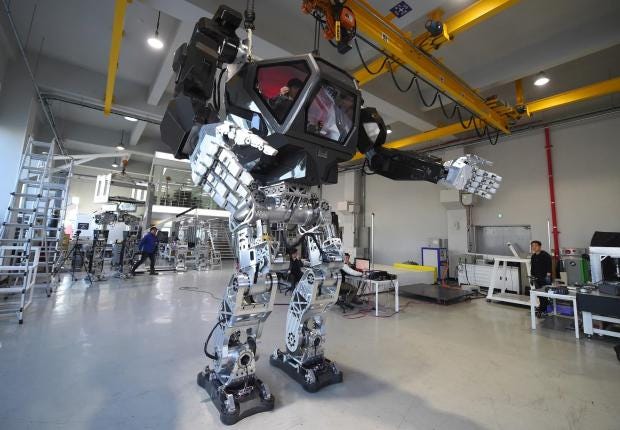The rise of artificial intelligence risks making us all redundant

At the start of a new year, what is there to look forward to?
According to predictions from think tanks and tech experts, advances in
automation and artificial intelligence
will threaten the jobs of millions of workers. The CEO of one company,
Capgemini, goes further, predicting that AI will be one of the key factors dividing society
into the haves and have-nots, with highly skilled engineers at the one
end of the spectrum and low-paid unqualified worker drones at the other,
with nothing in between.
There will be massive redundancies, for sure. Is it time to rethink
the welfare system and pay everyone a minimum living wage whether they
work or not? That proposal, known as a "universal basic income" is being
trialled in Finland but was rejected in a referendum in Switzerland
last June.
Facebook boss Mark Zuckerberg is investing heavily in developing AI. He recently released a corny "seasonal message" featuring his latest project,
a robot butler named Jarvis. We don’t see Jarvis, voiced by Morgan
Freeman, but the message is absolutely plain: this is not a bit of fun,
but the unveiling of a plan for our future, a future which tech
companies are battling to capitalise on.
Stephen Hawking has a terrifying warning about artificial intelligence
Zuckerberg has spent more than 100 hours programming Jarvis so that
it can switch on his household gadgets, his music system and even help
his small daughter learn Mandarin. It responds to voice commands issued
from a phone, even offering him a clean grey T-shirt in the morning.
Jarvis is also a gatekeeper, deciding who may or may not enter the
Zuckerberg home.
This cutesy video is surely designed to deflect attention from
Facebook’s recent woes, including failing to curb fake news reports
which critics reckon had a devastating impact on the result of the US
presidential election. Facebook stands accused of failing to monitor the
material it disseminates, consistently claiming freedom of speech by
default, allowing lies and blatant propaganda the same platform as real
news stories. Even the Pope has now decreed that publishing fake news is
a sin.
The development of a faceless, featureless robot is ominous; when his
daughter Max wakes up, surely she would prefer a cuddle from a human
being rather than a po-faced lesson from a non-person? By fostering the
illusion that Jarvis is sociable and has a use beyond the purely
functional in a small family unit, Zuckerberg is preparing the ground to
present AI as something new and desirable, rather than the ultimate
threat to our livelihoods. If he develops devices like Jarvis on a
commercial basis, will it give his company direct access into our homes,
whisking away what little privacy we may have left? And if this use of
AI relies on programmes derived from our speech patterns, should we hand
those over to a third party? And, given that we already spend far too
long staring at screens, and the time we interact with other people is
declining and loneliness increasing, can introducing robots into our
personal lives be a good thing?
Google and Amazon are already selling devices which can perform simple tasks, as well as developing rival driverless cars.
AI systems are being designed for supermarkets which allow customers to
choose their shopping and exit without going to a checkout. Soon,
robots will be stacking the shelves and running the entire show. No
wonder unions are worried.
As for driverless cars, what are the ethics involved in deciding how
they should respond to obstacles in their path? How do they
differentiate a dead pheasant or a deer from a person who may have
fallen down? And, if driverless cars are easily identifiable, will they
spawn a new kind of road rage – one directed at trying to provoke a
response from the robots taking over our lives?
Fans of AI say driverless cars will reduce deaths on the roads, and
represent the biggest change in our lives since motor cars replaced
horses a century ago. Really? Are we powerless to stop the rapid
roll-out of AI?
One of my favourite films as a student was Jean-Luc Godard’s
Alphaville,
in which Paris shot in atmospheric black and white is Alphaville, a
city controlled by a powerful computer dubbed Alpha 60. Emotion is
forbidden and anyone who deviates from accepted behaviour is terminated
by female assassins. Has a film ever seemed more prescient?
When Mark Zuckerberg tells us Jarvis is the start of something, be
very scared. The only butler I want at chez JSP will have blood in his
or her veins and be capable of questioning my more pretentious requests.
To be honest, if I could have one gift for 2017, if would be a few
hours a week from a real butler. Human beings make much better
companions
